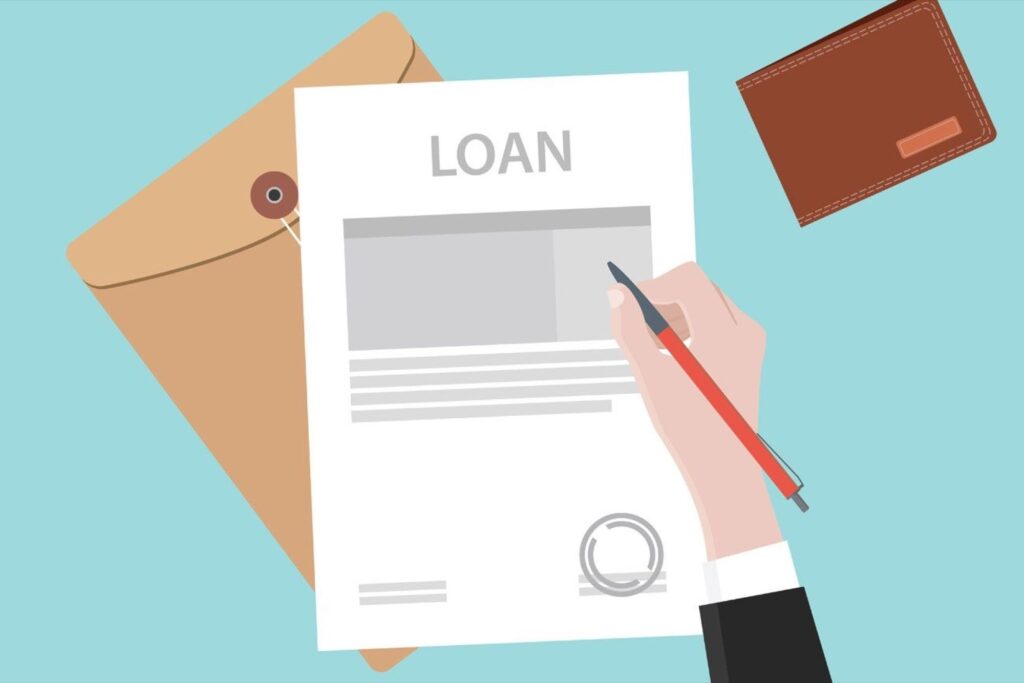
Like many households, you may have considered applying for a loan at some point. When you search on the internet for short term loans, you’re overwhelmed with choice. It might feel like everyone wants to give you their money. In fact, it might almost feel ‘easy’ to get your hands on cash. And in some ways, this is undoubtedly true.
The availability of loans has grown exponentially in the last few decades with the explosion of household internet and the smartphone, but recent reforms from governing financial bodies have meant that lenders are now tightening up their eligibility criteria and extensively ensuring that those people applying for loans can actually afford to repay them.
This is because many borrowers have found themselves in financial hardship when they have been given a loan which they cannot handle, causing harm to not only their immediate financial wellbeing but also wounding their credit score in ways that will take years to recover from. It creates a truly lose-lose situation. Customers are harmed and lenders were left without their repayments; therefore tighter regulations and a greater understanding of financial literacy will help you navigate the world of credit a little more safely.
In this guide, we look at the reasons for applying for a loan, and what might be the ‘right’ reasons. We then move on to some advice and tips on applying for a loan in the current market, and what you need to watch out for.
Reasons for Applying for a Loan – what qualifies?

When you apply for a loan, the lender does not usually ask you what the loan is going to be used for. Occasionally, there may be a drop-down option list for you to choose from, but in general, you don’t need to justify your decisions for applying. It is really on you to know that you need the loan and that you have searched the market, done your research, and have found the best option for you.
Your reason for applying for the loan could be one of many. The Wonga website, which offers short term loans in South Africa, says that there are ‘good’ and ‘bad’ reasons for applying for a loan. You will want to make sure your reasons are on the ‘good’ side. So, for instance:
- Educational fees. This might be a good reason for applying for a loan because it enhances your opportunities for the future. It allows you to get the training or qualifications you need, to get a better job, and be paid more.
- Car fees. You may need a car to get to work. Without the car, you may not be able to attend your place of work. This would therefore probably be considered a ‘good’ reason because it allows you to continue earning. So, if you need to buy a new car or repair your old one with a loan, this might be a sensible choice for you.
- Holidays are not really a necessity – although some people might argue with that! To apply for a loan to pay for a holiday probably isn’t the best use of your credit. You might instead like to spend a few months saving for this holiday and not rely on a loan – something which might be considered a ‘bad’ loan choice.

Of course, everyone’s situation is unique and complex. It may take a while to carefully consider your options and you may decide at the end of it that your choice is a ‘good’ reason. Regardless, this is what is important to financial institutions and lenders – they want to know you are making an informed decision, that you are thinking about the loan process and that you are not rushing into anything for some quick money.
Some Tips for Applying for a Loan

After you have determined that you are applying for a loan for all the ‘right’ reasons, you may need some tips on how to approach the application process.
Firstly, do your research. Make sure you find the best loan with the lowest rates and you can do this via internet searches. You can even use comparison sites.
An important thing to note here is to only use reputable lenders. In South Africa, you will find a lot of loan sharks, but these are not covered by insurance and may use questionable methods of collecting their repayments in the event you cannot repay them. There are reportedly 40,000 loan sharks operating in South Africa alone. It really is not worth the risk!
When you find a reputable provider, use their repayment calculator to find out what loan length would be best for you and how this impacts your repayments. Think about how long you want to repay the loan and what this means for the total debt repaid.

You also need to read terms and conditions. If anything in the terms and conditions doesn’t make sense, then call the company and ask them to explain it to you. Any reputable lender will be happy to talk to you and will want you to fully understand the loan. You might also want to talk to friends and family about the loan for extra reassurance.
Once you have applied for the loan, you can usually receive a quick decision on whether your application has been successful. Your money can reach your account within just a few days. You will be sent the repayment details so that you can be sure to make all the repayments on time. If your application has not been successful, you can try another lender – but beware that there will probably be a footprint on your credit file now that you have been rejected from a loan application. This might not affect future lending decisions but it is really up to the new lender to interpret your credit file. You can also look at ways of improving your credit file for future applications.








